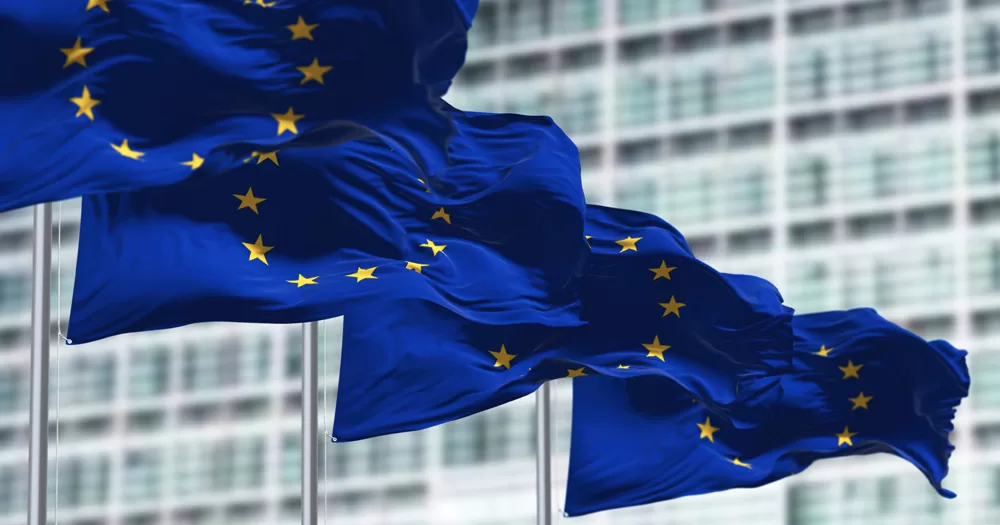With an overwhelming vote on Thursday, January 18, the European Parliament adopted a report calling on the Council of the European Union to introduce hate crime and hate speech in EU criminal law. The Parliament said that the Council should act by the end of the current legislative term to ensure such protections for everyone in Europe.
Currently, each EU member state deals with hate crime and hate speech in criminal law in different ways. Some countries, including Ireland, don’t even have legislation in place to protect people from hate crime or hate speech, or have provisions that only protect certain minority groups while excluding others, such as LGBTQ+ people.
In light of the rising hate against minority groups in Europe, in 2021 the European Commission tabled a proposal to the Council to include hate speech and hate crime on the list of EU crimes. If this were to happen, each member state would have to adopt conforming measures in their national legal context.
However, two years have passed and the Council has made no progress on the proposal. With 397 votes in favour, 121 against and 26 abstentions, the European Parliament has called on the Council to finally act by the end of the legislative term.
Moreover, the Parliament urged the Council to consider an “open-ended” approach, meaning that the grounds for discrimination included in the legislation wouldn’t be limited to a closed list and would therefore also cover incidents motivated by new and evolving social dynamics.
The report adopted by the European Parliament also underlines that, while freedom of expression must be protected, it cannot be exploited to become a “shield for hate”. The Parliament also noted that special attention should be placed on online hate speech as well as bullying in schools and cyberbullying.
We strongly welcome today’s overwhelming vote in the European Parliament calling on hate crime & incitement to be added to EU wide laws.
And for ?️??️⚧️ and other groups to be fully protected across ??#UnionOfEquality @LGBTIintergroup @GCNmag @MarcAngel_lu @RemyBonny #StopHate https://t.co/V8KChnITPi
— NXF (@nxfie) January 18, 2024
Speaking during the debate, Rapporteur Maite Pagazaurtundua said: “In addition to lacking a comprehensive European legal framework to tackle hate speech and hate crime, we are facing new social dynamics, through which the normalisation of hate evolves very quickly.
“We must protect ourselves as a society and the people who are attacked, persecuted and harassed, while responding to the radical networks and extreme polarisation that provide fertile ground for behaviours that violate fundamental rights,” Pagazaurtundua continued.
“We ask the Council to finally give the green light to the legislation against hate crime and hate speech at EU level, always in accordance with the principle of proportionality and guaranteeing citizens’ freedom of expression.”
In Ireland, the Incitement to Violence or Hatred and Hate Offences Bill was first published on October 27, 2022, and is slowly moving through the legislative process. Having passed its second stage in the Seanad last June, the bill hasn’t progressed further.
If passed, it will introduce “aggravated” versions of existing criminal offences in cases in which such offences are motivated by hatred against a victim’s “protected characteristics”. In addition, it will expand the existing hate speech legislation, making communication or behaviour that is likely to incite hatred a criminal offence, with a penalty of up to five years in prison.
On the same day MEPs voted on hate crime and hate speech, the European Parliament also passed a resolution calling for a “permanent ceasefire” in Gaza. While the resolution is purely symbolic and carries no legal weight, it represents a significant shift in the EU’s previous position, given that in October the Parliament called for a “humanitarian pause” to allow the flow of aid to reach civilians in Gaza.
This call for a ceasefire comes as the death toll in Gaza has surpassed 24,000 since the start of the Israeli offensive, according to figures provided by the health ministry in the region.
© 2024 GCN (Gay Community News). All rights reserved.
Support GCN
GCN is a free, vital resource for Ireland’s LGBTQ+ community since 1988.
GCN is a trading name of National LGBT Federation CLG, a registered charity - Charity Number: 20034580.
GCN relies on the generous support of the community and allies to sustain the crucial work that we do. Producing GCN is costly, and, in an industry which has been hugely impacted by rising costs, we need your support to help sustain and grow this vital resource.
Supporting GCN for as little as €1.99 per month will help us continue our work as Ireland’s free, independent LGBTQ+ media.

comments. Please sign in to comment.